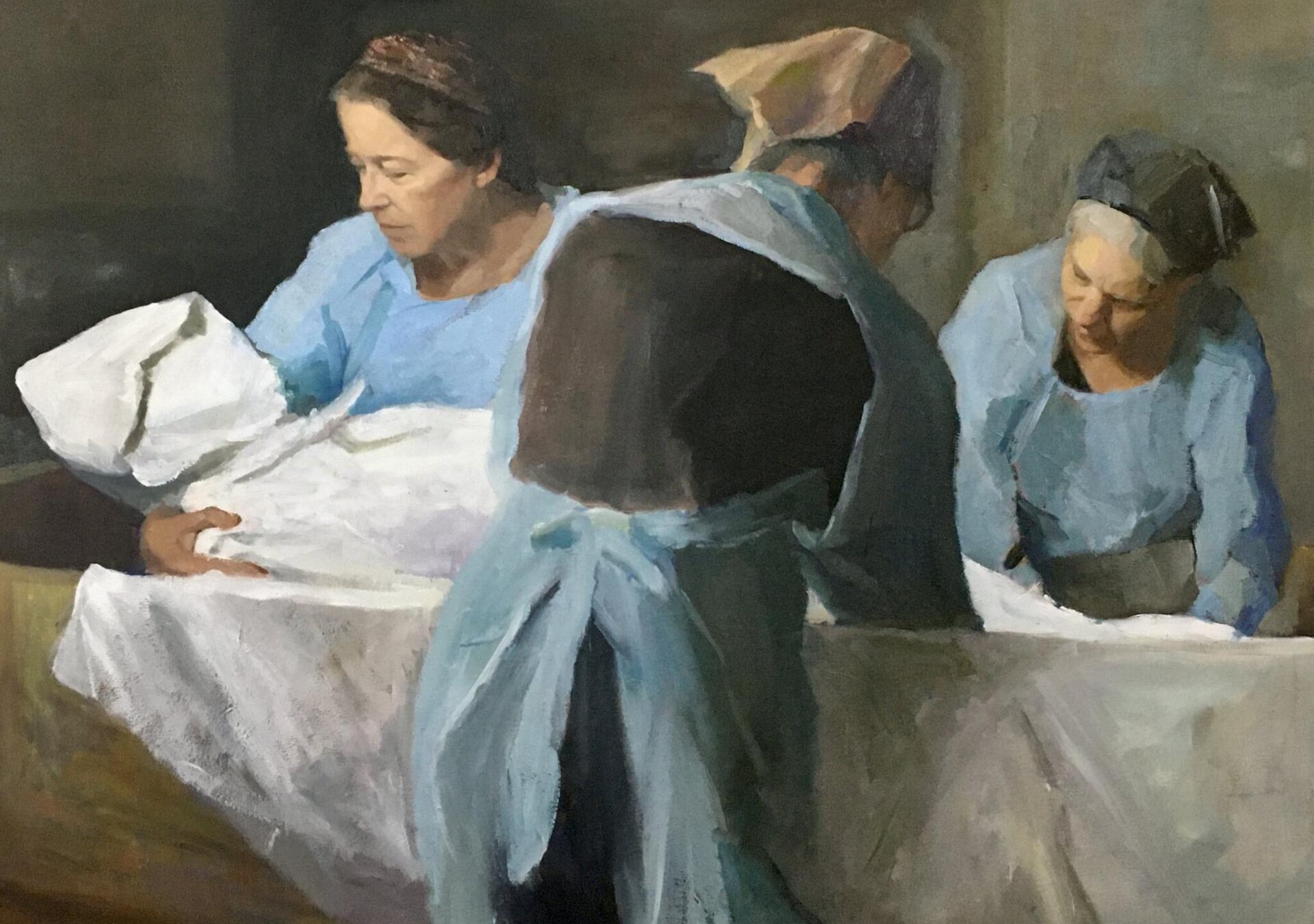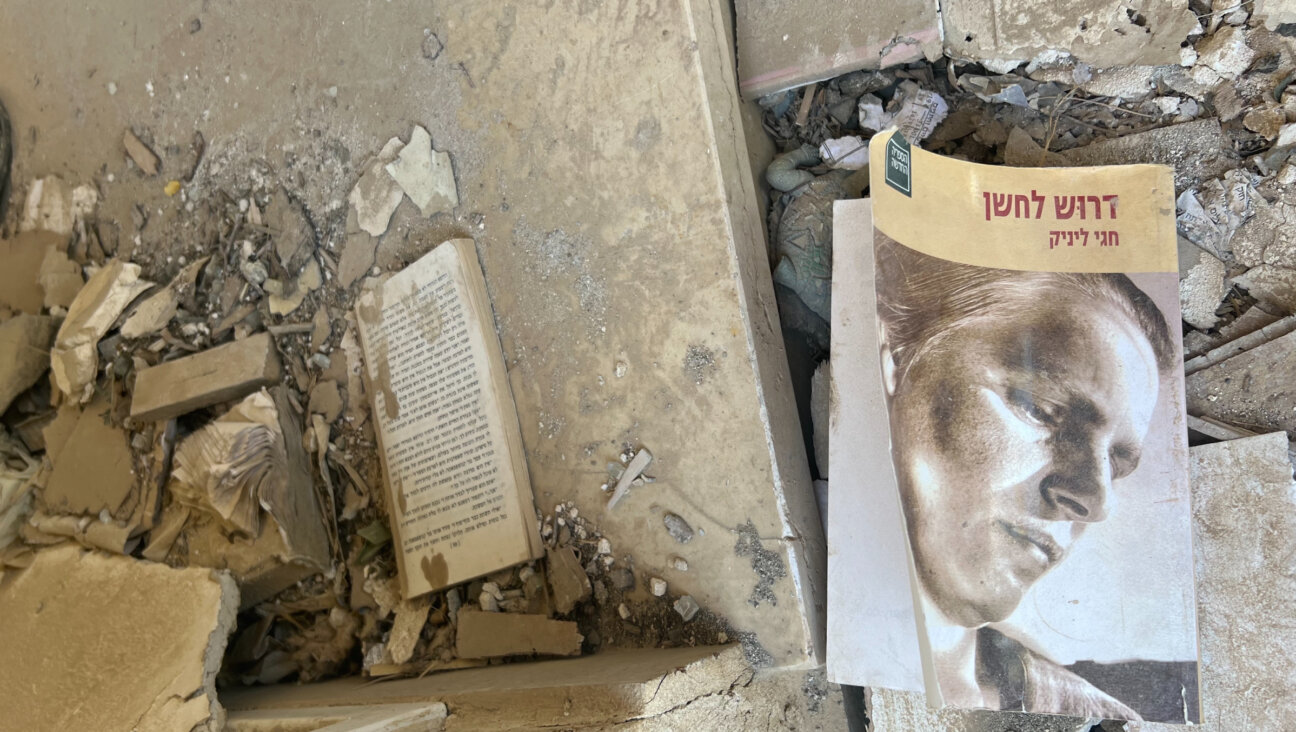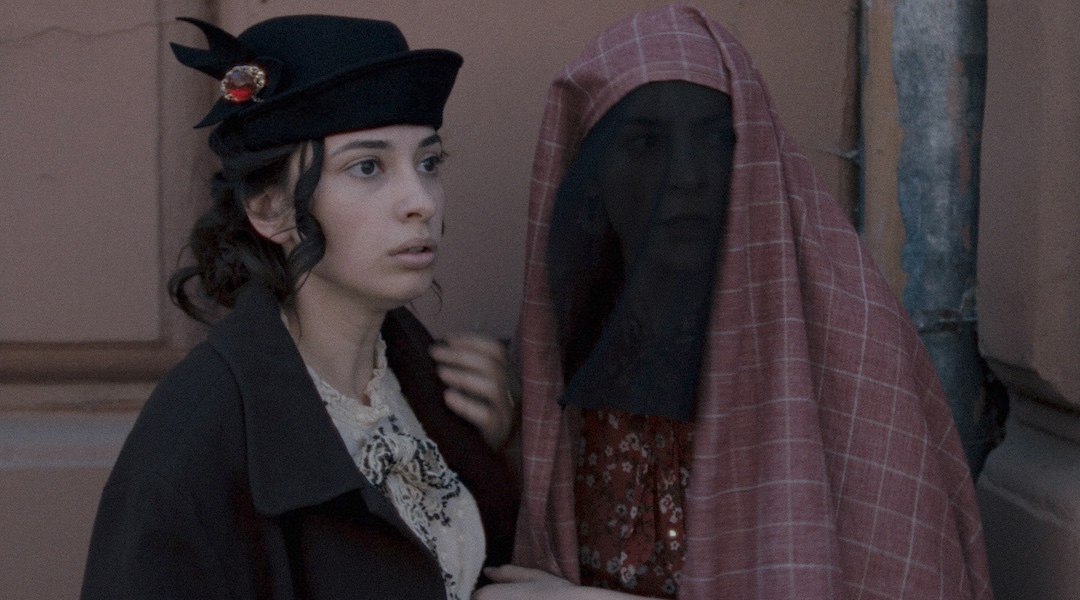Reform Jews say they’ve created their first New York City burial society
50 volunteers will follow the intricate Jewish laws governing the preparation of a Jewish body for burial

Angels of Mercy Embrace the Dead, 2023, oil on canvasboard. Photo by Karen Benioff Friedman
Four Jewish groups say they are the first in New York City to establish a chevra kadisha, or burial society, associated with the Reform movement.
The society, which will perform rituals embraced by those who typically follow Jewish law more stringently, was formed by Plaza Jewish Community Chapel in Manhattan, Temple Shaaray Tefila in Manhattan, Congregation Beth Elohim in Brooklyn and seminary students at Hebrew Union College – Jewish Institute of Religion in Manhattan.
“I look at this as such a beautiful connection between the more progressive communities and the traditional rituals that are observed by the Orthodox community,” said Stephanie Garry, Plaza’s executive vice president of communal partnerships. She said the groups have been talking about the project for years.
Although there are only a handful of Reform chevra kadishas nationally, Garry said she hopes the New Yorkers’ efforts will inspire others within and beyond the Reform movement. Recently, she said, a Conservative congregation in Westchester County, New York, asked Plaza for guidance in creating their own burial society.
The society has signed up 50 volunteers from the two congregations and the seminary. They completed training last month on tahara — washing of the body and dressing it in a traditional plain white garment — and shemira — watching over the body — until burial. Jewish law prohibits the living from leaving a Jewish corpse unattended before burial.
“Together, we are learning and embracing this most sacred mitzvah of caring for the dead,” said Rabbi Rachel Timoner of Congregation Beth Elohim. “At the same time, we have been developing our own rituals to be mindful and respectful of the multiplicity of gender identities.”
Traditionally, Jewish men care for Jewish male corpses, and Jewish women care for female corpses.
“It is with awe and respect that our chevra kadisha will take on this Jewish act of what the rabbis of tradition call chesed shel emet, of ultimate kindness,” said Rabbi Joel Mosbacher of Temple Shaaray Tefila. Those who volunteer to serve the dead, “do so knowing that the person they are tending to will never be able to thank them.”
The Forward is free to read, but it isn’t free to produce

I hope you appreciated this article. Before you go, I’d like to ask you to please support the Forward.
Now more than ever, American Jews need independent news they can trust, with reporting driven by truth, not ideology. We serve you, not any ideological agenda.
At a time when other newsrooms are closing or cutting back, the Forward has removed its paywall and invested additional resources to report on the ground from Israel and around the U.S. on the impact of the war, rising antisemitism and polarized discourse.
This is a great time to support independent Jewish journalism you rely on. Make a gift today!
— Rachel Fishman Feddersen, Publisher and CEO
Support our mission to tell the Jewish story fully and fairly.
Most Popular
- 1

Fast Forward Ye debuts ‘Heil Hitler’ music video that includes a sample of a Hitler speech
- 2

Opinion It looks like Israel totally underestimated Trump
- 3

Culture Is Pope Leo Jewish? Ask his distant cousins — like me
- 4

Fast Forward Student suspended for ‘F— the Jews’ video defends himself on antisemitic podcast
In Case You Missed It
-

Fast Forward For the first time since Henry VIII created the role, a Jew will helm Hebrew studies at Cambridge
-

Fast Forward Argentine Supreme Court discovers over 80 boxes of forgotten Nazi documents
-

News In Edan Alexander’s hometown in New Jersey, months of fear and anguish give way to joy and relief
-

Fast Forward What’s next for suspended student who posted ‘F— the Jews’ video? An alt-right media tour
-
Shop the Forward Store
100% of profits support our journalism
Republish This Story
Please read before republishing
We’re happy to make this story available to republish for free, unless it originated with JTA, Haaretz or another publication (as indicated on the article) and as long as you follow our guidelines.
You must comply with the following:
- Credit the Forward
- Retain our pixel
- Preserve our canonical link in Google search
- Add a noindex tag in Google search
See our full guidelines for more information, and this guide for detail about canonical URLs.
To republish, copy the HTML by clicking on the yellow button to the right; it includes our tracking pixel, all paragraph styles and hyperlinks, the author byline and credit to the Forward. It does not include images; to avoid copyright violations, you must add them manually, following our guidelines. Please email us at [email protected], subject line “republish,” with any questions or to let us know what stories you’re picking up.
















